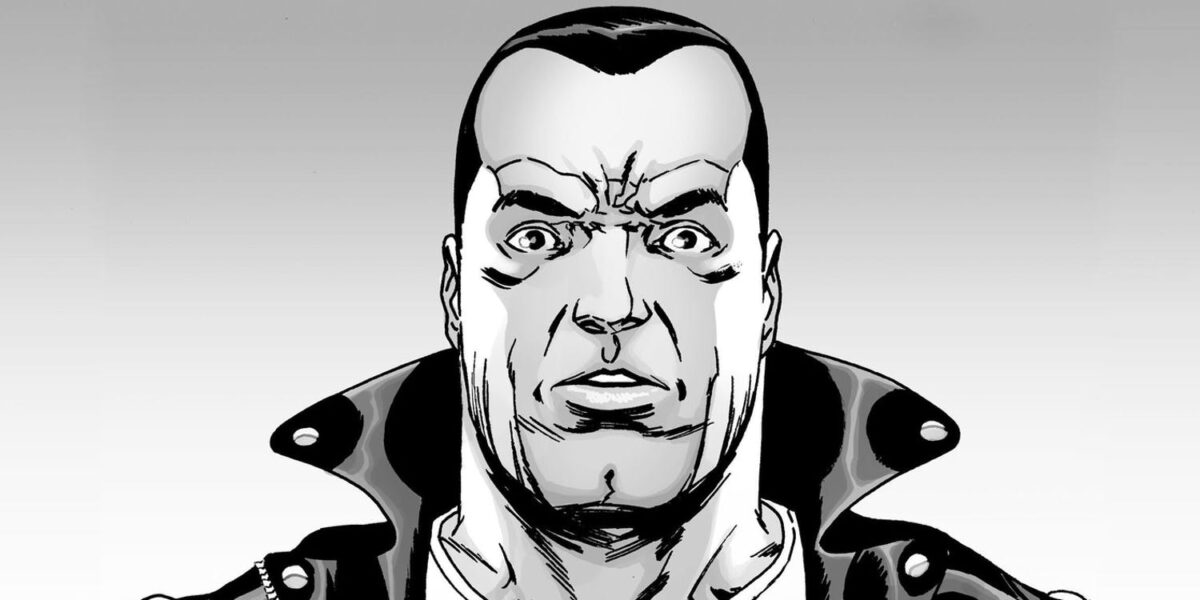DOUBLE WALKER
Writer: Michael W. Conrad
Artist: Noah Bailey
Letterer: Taylor Esposito
Publisher: Comixology
Spoiler Level: Green (solicit) Yellow (review) Red (recap)
If you know me at all there’s a good chance you already know that I love horror – comics, films, tv shows, you name it. Anything except video games – but that’s another story. What you may not know is, despite my love for the genre, horror has never been especially horrifying to me.
Oh sure, jump scares can be startling but I wouldn’t say I’m especially prone to being creeped out or truly frightened by fiction. The thing is, for me the appeal of horror stories isn’t in the horror, it’s in the stories. Vengeful ghosts, monsters both human and inhuman, psychological torment, suspense, terror. As a genre that rests on the humanity and emotion of the story’s victims, horror is perhaps the most inherently human corner of fiction, particularly among the genres that frequently deal in supernatural forces.
So yes, I love it, but even so I can probably count the number of times horror has actually unnerved me on my fingers, with some to spare.
But… after reading Double Walker, the remaining fingers have gone down by one. And that’s why we’re going to interrupt my half-written columns to talk about Double Walker.
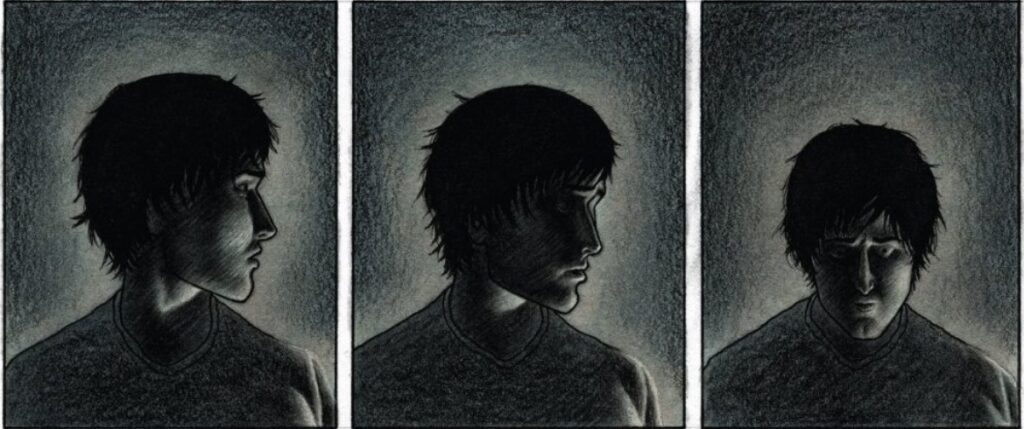
So. Major changes in life often come with major limitations to life… but that isn’t always a bad thing. For Cully and Gemma, a happy American couple currently expecting a child, it’s nothing but good. When we join them at the beginning of Double Walker, they are enjoying what they realize will be their last vacation for a while; once the baby arrives, everything changes.
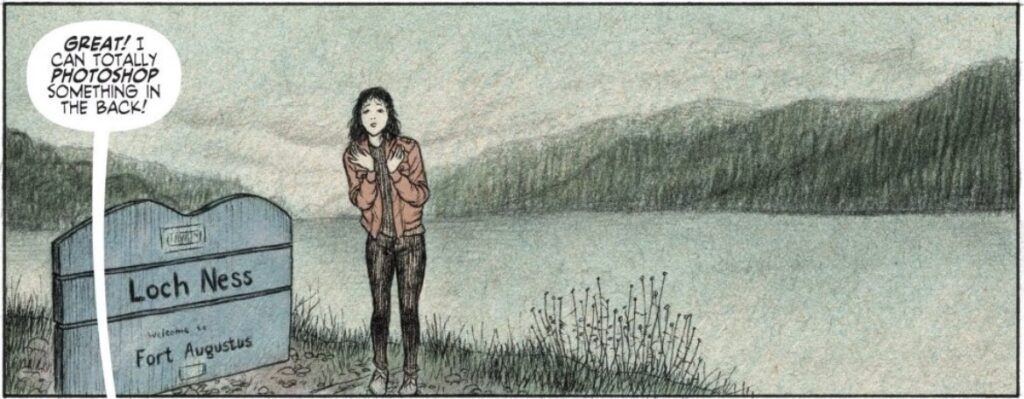
But they’re ready for it! Staying at a local bed and breakfast run by the kindly Miss Deidre, they’re planning to get in as much adventure as they can before heading home and into their new life. This means trips to Loch Ness, of course, as well as some nice wilderness hikes and warm nights at a local tavern where Cully drinks, Gemma eats, and together they get to know the local lore.
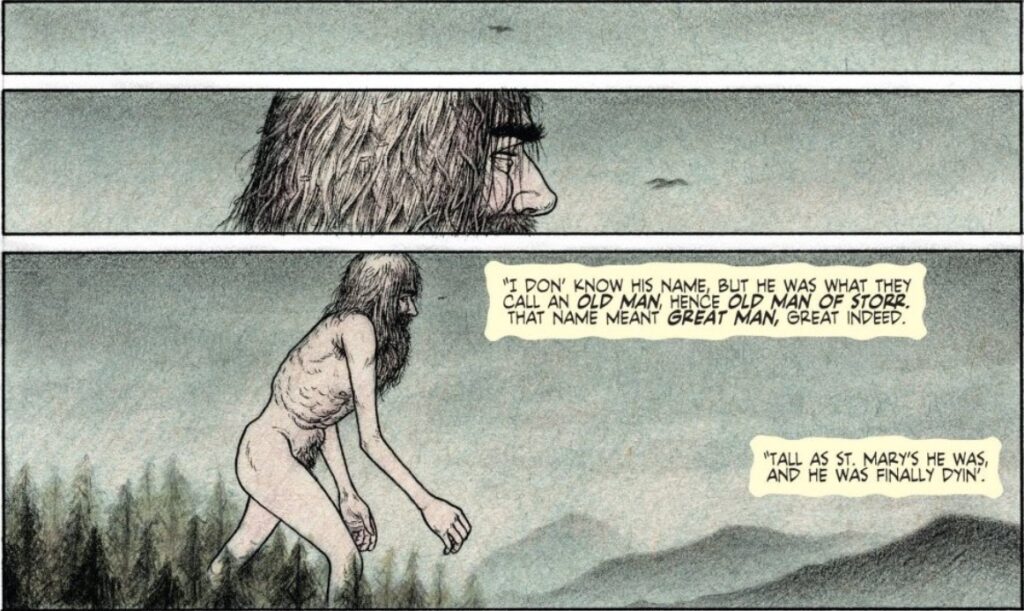
The lore in question mostly relates to the fae folk… but these are not the fairies Gemma and Cully are familiar with. As is the case with most Americans, the couple mainly knows the Disneyfied take on fairies – the Tinkerbells or kindly old helpers in Sleeping Beauty. They don’t know about changelings, the carnivorous shapeshifters, or the calcified corpse of the enormous Old Man of Storr. And as is the case with such tales, it’s that ignorance that makes them vulnerable.
It’s not an uncommon skeleton of a plot. Outsiders enter a place beset by forces they don’t understand and, left vulnerable by their ignorance to the deadly situation they’ve stepped into, find themselves in danger of being consumed by those forces. It’s a story as old as stories, a play on the human fear of unknown places, unknown forces and unknown people. You can see echoes of this basic plot in every genre known to man or beast, but it’s especially appealing to horror writers and readers. H.P. Lovecraft’s “The Shadow over Innsmouth” is perhaps the most famous take. That said, Double Walker is as much a child of Ari Aster or Jennifer Kent as it is Lovecraft, or Stephen King, as it makes use of a supernatural premise to explore a very human trauma.
The spiral begins when Cully and Gemma decide to undertake a hike up the famous Old Man of Storr trail. Despite some concern for her pregnancy, Gemma agrees to the walk after being assured by locals that it isn’t an especially difficult one.
That the walk is more difficult for her than anticipated is obvious. When we join the couple on their way up, Gemma is barely managing to maintain her pace, and over the course of a few panels she falls farther and farther behind. Having reached her limit, she opts to stop and rest, but encourages Cully to continue on his own. He first tries to convince her to continue, but eventually does leave her behind and reach the top of the trail on his own.
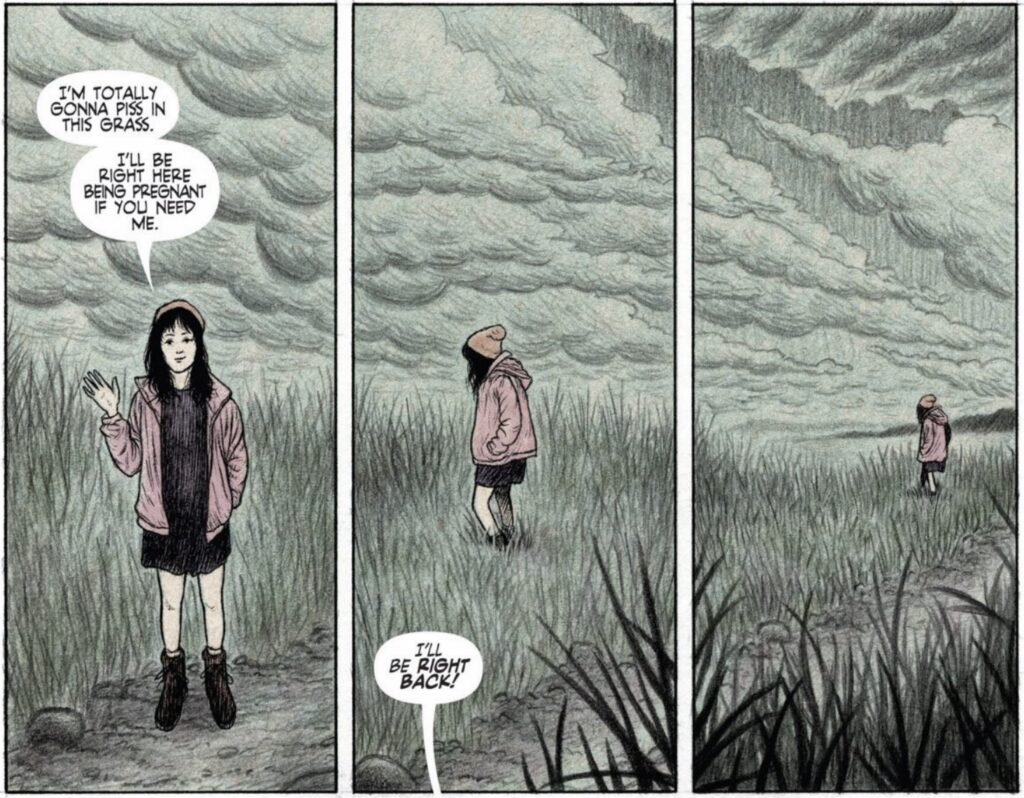
This is the last moment of normalcy for them. By the time Cully returns, Gemma has suffered a miscarriage… or something like one… and everything is different.
The question hanging over the remainder of the story is simple: what happened during their separation on that hill?
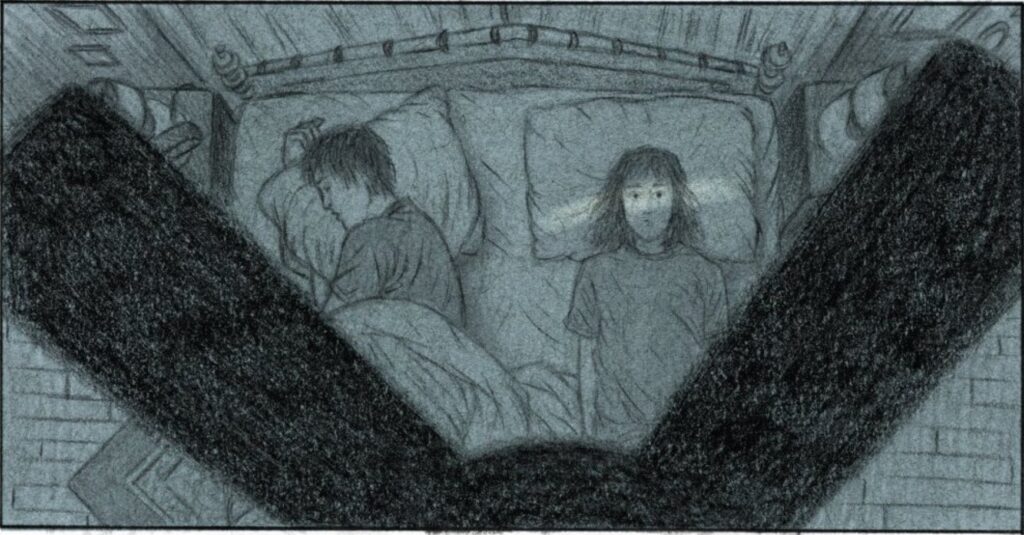
The question is clear, but the answer is less clear and more, in some ways the answer is slightly to the left of the point. Whatever it is that actually happened, ultimately it serves to catalyze an examination of the couple’s relationship in the presence of loss –of their child, of themselves, and of the future they had envisioned. Inevitably, unsaid things begin to break down their bond. There’s no road map for this. Neither knows the way out. Suddenly guilt, resentment and grief have taken up residence in the spaces between them, and there’s no guarantee that they can come back.
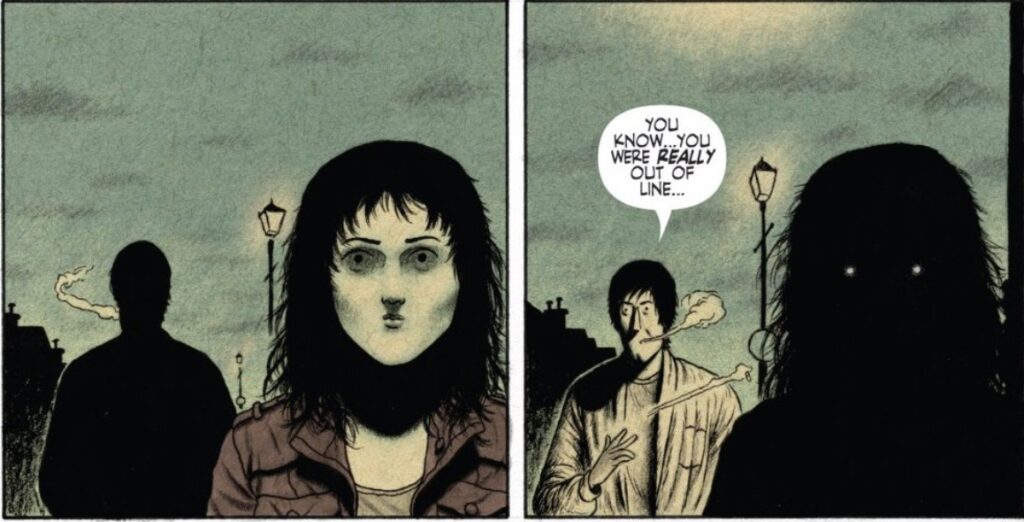
Now, all that said… fiction is, as always, a metaphor for the human condition, and horror is no exception. From a human perspective, it’s natural that Gemma resents Cully – he took her to that hill. He pushed her to keep going when she didn’t feel well and ultimately left her behind. The fact that she told him to go, that he had no way of knowing what would happen in his absence, is immaterial in the face of all that grief, and the human actions she undertakes in her pain are natural, perhaps even inevitable.
[Changeling]
But, of course, there’s a great deal more going on here than is immediately evident to the characters themselves.
When Cully finds Gemma on that hill, she is lying beside a Faerie Pool, which legend suggests serves as a gateway between the mundane realm and the home of the Fae. Indeed, if one believes the legends, they were treading on the bones of the Old Man and surrounded by the whispers of carnivorous fair folk from the moment they stepped foot onto that path.
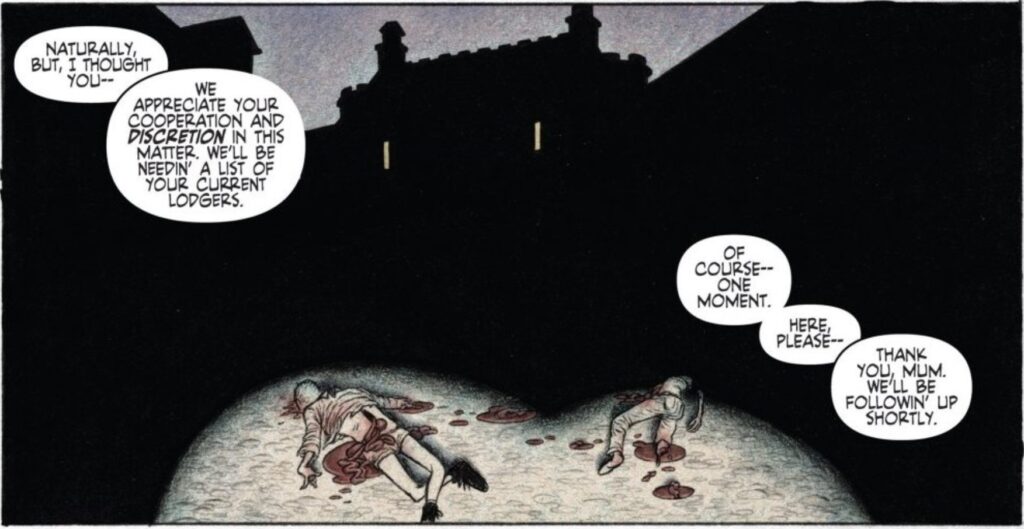
Given that, it is perhaps unsurprising when a series of overwhelmingly violent crime scenes begin to grip the area. It is even more odd, perhaps, that the local residents show no signs of surprise or panic. They show very little fear opting, instead, to grit their teeth and bear it. That includes law enforcement, present in the form of Detective Inspector Mitchell and Chief Inspector Paterson – a duo of officers whose approach is more “keep an eye on it” than stop it. They speak of whoever – or whatever – is causing the damage as though they are a force of nature or a local colony of destructive animals. Keep your head down, ground yourself, wait. It will work itself out in the end, and if you’re lucky you’ll still be standing at the other end of the storm.
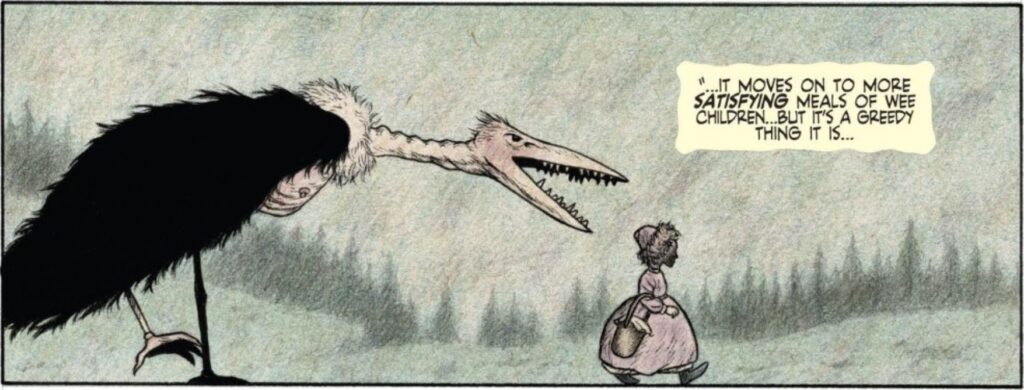
If you choose to read Double Walker, which you should, I’ll say right now that you should plan to read it twice. For that matter, you might want to plan for a third go through just in case. As the story is told firmly inside Cully’s viewpoint for most part, it can be easy to take his understanding of events at face value. However, never forget that he is, like all the best narrators, unreliable.
Just remember that while there is truth inside every myth, and that sometimes the ones we tell ourselves are the least honest stories of all.
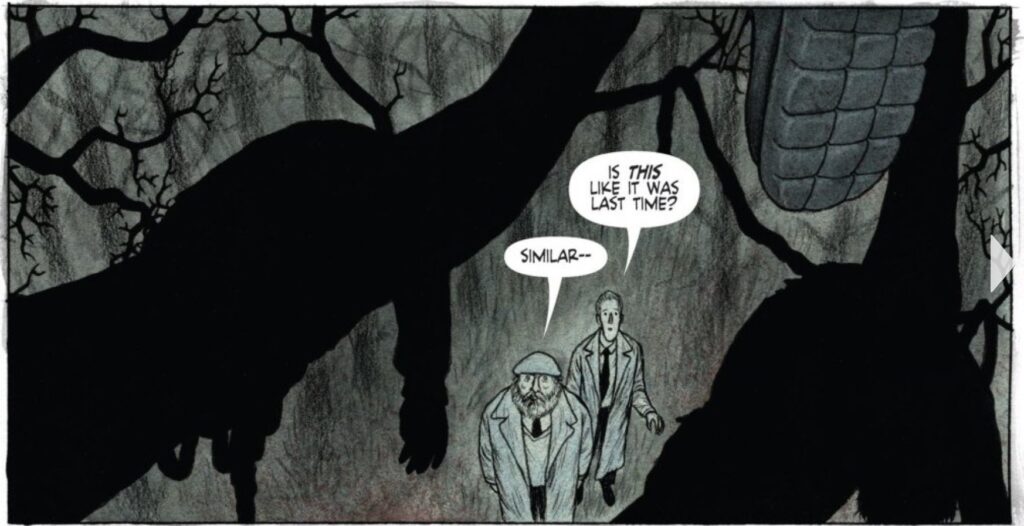
It’s hard to articulate the impact Double Walker had on me. I read it at around 1am, amid staving off a migraine. I was alone, in the quiet, with the lights down… and then there’s this book.
Noah Bailey’s artwork is just… chef’s kiss. It is exquisitely detailed without being overwhelming, and his characters are just stylized enough to be creepy when they need to be, and relatable when they need to be as well.

More than anything else, though, Bailey really knows how to sell the atmosphere. As I said in the opening paragraphs, it’s incredibly rare for me to find horror frightening, and that applies even more to books or comics than to film and television. It’s the static nature of it, I suppose, but that is not the case here. I don’t know how to describe it other than… every panel feels full of fog – the kind of thick, oppressive greyness with the kind of thick air that mutes everything into grey. Here colors are rare, and barely there when they arrive, and the muted palette just leeches the life out of everything in the very best way.

Reading Double Walker, gives me the same feeling I get when watching The Ring –that the world is silently “wrong” in a million subtle ways I can’t quite put to words.
The difference is the threat of a cursed video tape calling up a magical ghost who kills you in 7 days if you don’t make a copy of the tape just doesn’t rate next to the crushing power of doubt, emotional isolation, guilt, and loss.
Sort of a quick one this time around, but this story has really been sticking with me ever since I read it. That night I sent Michael W. Conrad a tweet and told him I’d blame him for any nightmares I had. What I didn’t mention was that I did literally dream I was in this world that night. It gets under my skin something fierce, my friends, I can’t recommend it enough.
It would also make a phenomenal film or miniseries. I’m just saying.
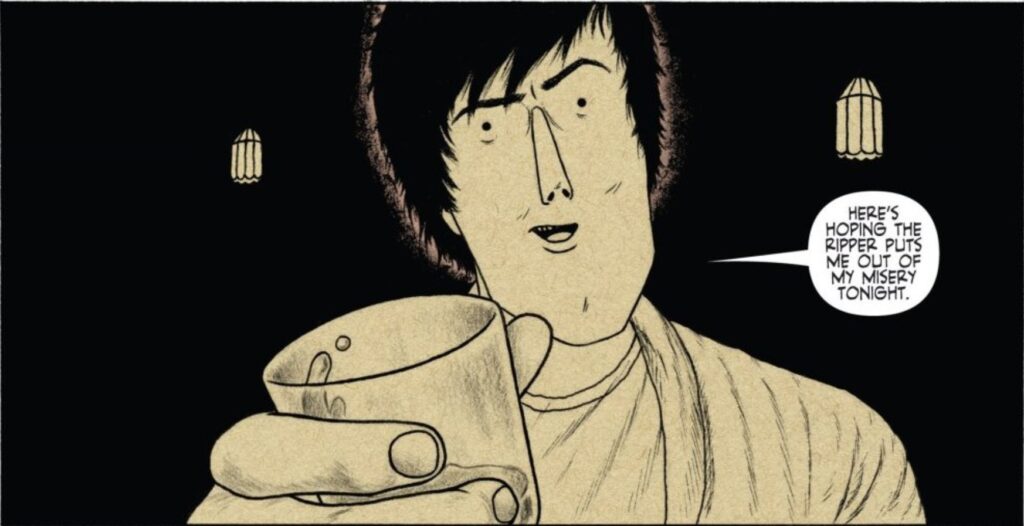
Next time on The Longbox View… You know what, we’re just gonna see what happens for now.
Until then, stay safe and keep reading!
ARIEL BEE IS… An Old Person. A Comics reading veteran. Mostly involved with DC and indies but happy to go on the occasional Marvelous Mission into the unknown. An analytical overthinker. Also found as a reviewer on Comics-Watch and Twitter @thearielbee.


